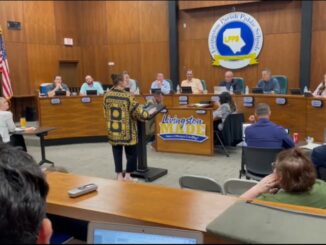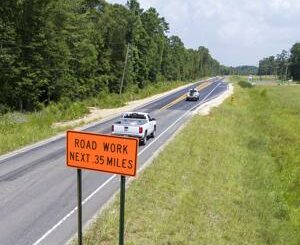The Livingston Parish School Board will vote Thursday on whether to recommend to the parish council a developer’s impact fee that would support the district’s public schools.
Amid a surge in growth for the region, the fee would be levied on developers looking to build in the parish, with the funds generated supporting school construction, according to School Board President Cecil Harris.
School leaders had approached the Livingston Parish Council with the proposal last year, suggesting a per pupil range of about $4,000 to $9,000 — but after some discussion council members asked the district to produce an exact number. Now, the school district’s budget and goals committee is prepared to bring the new number of $6,600 to the full board for approval before it once again approaches the parish council.
Officials calculated that total by considering the construction cost per square footage for a house, transportation needs and the amount it takes to educate a child, among other considerations, Harris said. He emphasized that the impact fee, should the school board approve recommending the measure, would be submitted to the parish council for its consideration.
“The developers are coming in. We’re not against development because we’ll educate and we want our kids to come. But it’s got to be reasonable,” Harris said. “If they build a subdivision with 2,000 houses, we’re projecting 1,000 kids. That’s one entire school for a subdivision.”
An elementary school is usually capped around 500 students, while a middle school could range from 700-1000, and high schools a couple of thousand, he said. One thousand students could easily mean the parish must build two more elementary schools to meet the need.
“A big subdivision is going to impact the school and community a lot more than someone who owns a piece of land somewhere and builds one house,” Harris said.
He estimates that it takes about $25 million to build an elementary school, $35-40 million to build a junior high and $80-90 million to build a high school. Those facilities can be built only using bonds, millages and property taxes, among other sources.
“We’re bonded out in some districts,” Harris said. “We’ve got to have some help, some kind of way.”
Apart from the influx of new residents in a rapidly growing parish, district schools are facing another hurdle: a teacher shortage. Matters have grown more dire since Livingston Parish voters rejected a 1-cent sales tax in March that would have supported district employee pay raises.
Educators protested the outcome, picketing a school board meeting and asking for a seat at the table to determine how to find a salary solution.
With many of the parish’s schools already at or near capacity, the potential is high for teacher dissatisfaction to increase if the money isn’t available for new campuses — even as the number of new students surges.
“What we like to have is a 20 to 1 ratio, a 23 to 1 ratio — student to teacher,” Harris said. “If we can’t build anymore schools, we’re going to have a 40 to 1 ratio.”
Karen Zito, president and CEO of the Home Builders Association of Greater Baton Rouge, said in an e-mailed statement that the organization opposes impact fees, but is eager to discuss its reasoning with parish officials.
“Impact fees affect housing affordability negatively by driving up home prices and pricing out residents looking to buy a home,” she said. “Elevated mortgage interest rates, combined with higher home prices, create affordability challenges, particularly for first-time buyers. It is important to note that the homebuilding industry’s economic impact is large, and housing pays for itself in Greater Baton Rouge.”
Zito noted an industry priority is to provide attainable housing options for a growing “critical workforce,” such as teachers, first-responders and nurses.
“The Home Builders Association of Greater Baton Rouge is committed to working with our officials by convening our diverse network of industry experts to help create solutions to community challenges as well as help build thriving sustainable communities where we live, work, and play,” she said.




Leave a Reply